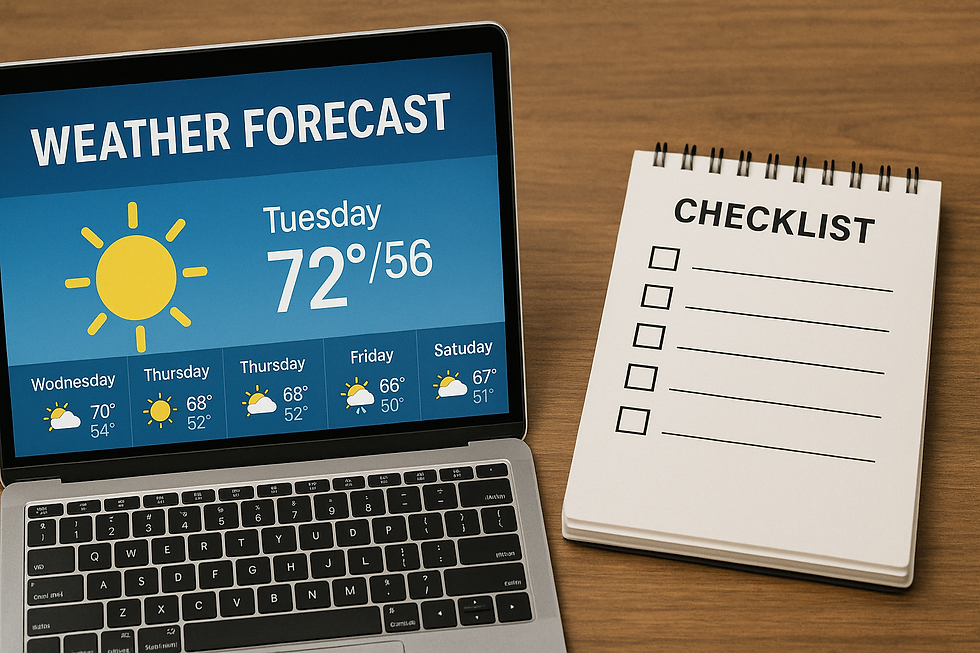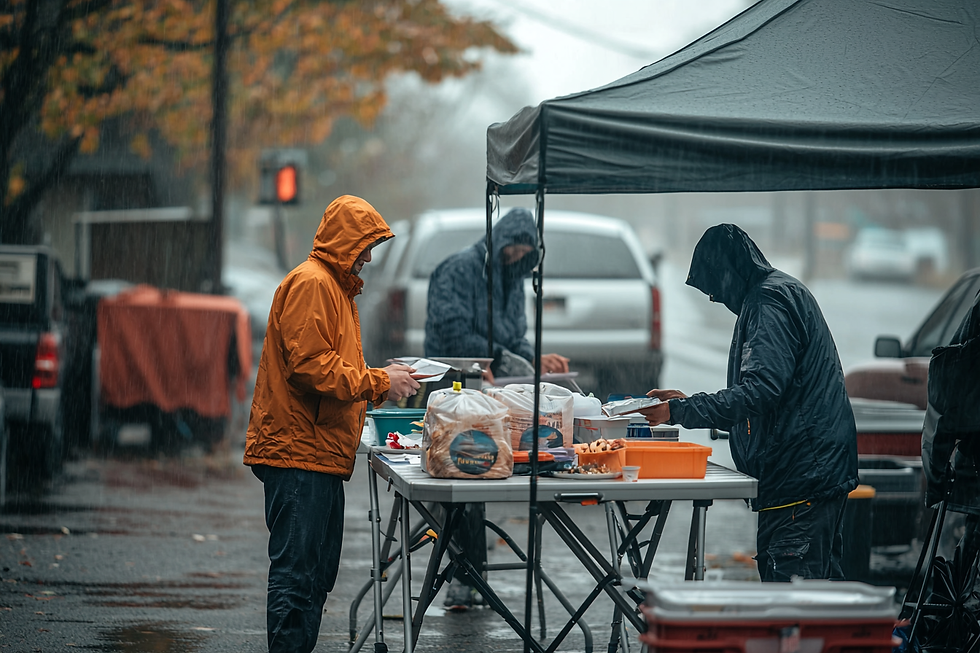Weather Contingency Planning for Outdoor Summer Events
- Healthy Sustainable Communities

- Jul 25
- 3 min read

In Oregon’s small coastal towns, community events do more than bring people together—they drive downtown foot traffic, support local businesses, and infuse much-needed vibrancy into main streets. But planning an outdoor event under Pacific Northwest skies can feel like a gamble, especially with limited funds. One poorly timed rainstorm or windy afternoon can put hard-earned resources—time, funds, and the hopes of your community—at risk.
Weather contingency planning isn’t just about avoiding disappointment; it’s about maximizing the return on your event investments and keeping your community engaged, rain or shine. Effective planning ensures your town’s signature events boost morale and local commerce, not drain them.
Assessing Local Weather Risks and Crafting Backup Scenarios

Start with a realistic assessment of the most common weather threats for your event date and location. For Oregon coastal towns, this typically means:
Unpredictable rain or drizzle—even in July or August
Gusty winds, especially in open areas
Sudden temperature drops
Dense marine fog rolling in from the ocean
Practical Steps:
Review local weather data: Note the day-to-day variability, not just monthly averages.
Tap into community memory: Ask veteran staff, volunteers, or local business owners for “worst-case” stories from past events.
Decide on trigger points: Set in advance the weather conditions (e.g., 70%+ chance of rain, wind gusts over 25 mph) that would move your event to a backup plan.
Building Simple, Flexible Event Plans

You don’t need elaborate infrastructure to create adaptable event plans. Flexibility, not complexity, is your friend.
Framework for Small-Town Event Flexibility:
Choose versatile venues: Opt for locations near sheltered areas like community centers, fire stations, or large overhangs. If possible, reserve backup spaces in advance—even if it’s just a basic pavilion or covered patio.
Invest in portable equipment: Pop-up tents, folding chairs, and portable sound systems are more affordable than permanent fixes and can be reused. Consider borrowing from local schools or civic groups to expand your inventory without increased costs.
Keep plans modular: Design your schedule so that activities can move indoors or under cover with minimal disruption. Label on-site event maps with “Plan A” and “Plan B” layouts if needed.
Communicating Weather Plans Clearly
Even the best backup plans are only useful if everyone knows them.
Communication Tips:
Develop a simple weather action sheet: Include clear criteria for implementing the plan, who makes the call, and what happens next.
Establish a single point of contact: Designate one person to relay updates so vendors and volunteers aren’t scrambling for information.
Use familiar community channels: Leverage local email lists, text alerts, social media, or the town website for rapid updates the week and day of the event.
Communicate early, communicate often: Share potential contingency details multiple times—when vendors sign up, in pre-event reminders, and in day-of signage on site.
Measuring Success and Learning for Next Time
Weather planning only gets better when you track results and reflect on the experience.
Easy Evaluation Methods:
Hold a short debrief with staff and volunteers: Did the plan work? What caught people off guard? What needlessly complicated things?
Note community response: Track feedback from vendors and attendees to see how contingency plans affected their experience.
Document lessons learned: Start a running event “playbook” so future teams build on real insight—not just recollections.
Need a Stronger Weather Strategy?
Small towns can achieve resilient, budget-smart outdoor events—even with unpredictable Oregon weather and limited capacity. Practical contingency planning doesn’t demand big spending, just clear priorities, flexible thinking, and communication.
If you’re ready to build a more robust weather strategy—or need help designing easy-to-use emergency management and event plans—HSC is here to support you. Connect with us to learn how professional guidance can make your next event even more successful, rain or shine.




Comments